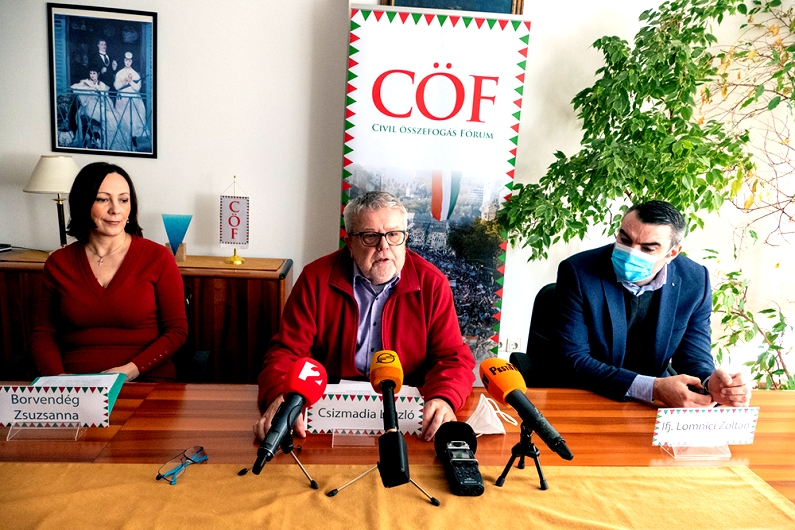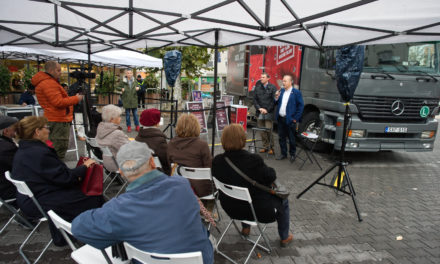The Civil Cooperation Forum-Civil Közhaznú Alapítvány (CÖF-CÖKA) reported on the Civil Justice Committee's research at another press conference. This time, historian Zsuzsanna Borvendég spoke about the activities of the supranational networks still operating today.
The founding president of CÖF-CÖKA, László Csizmadia, reported even before the presentation of the pre-announced topic that the NGO approached the Mayor's Office with a public interest data request. Their answer arrived, but its content - according to László Csizmadia - is meaningless. However, it turns out that they really discussed the sale of the City Hall.
During the town hall hearing, the mayor also only tried to smear the case and evade responsibility. The founding president also predicted that, in light of what happened, it is likely that the work of the Civil Justice Commission cannot be limited to uncovering the crimes of the past, they will also have work related to the events of the present.
Chairman of the Committee, jr. Zoltán Lomnici explained the questions coming to the committee: did the international networks end their operation with the regime change, or do they still function without disturbance today? Several researches by Zsuzsanna Borvendég prove that conspiracy theories have become reality, that the "deep state", the background power, is at work. The work of the historian mainly deals with the economic aspect of this.
Borvendég Zsuzsanna believes that during communism, a series of systematic, organized, system-level abuses took place, which could have been classified as a crime even according to the laws of the time , which led to our fatal indebtedness,
He said that in 2012, a British NGO disclosed how much money flowed from countries around the world to off-shore accounts. from Hungary between 1980 and 2010, which puts us in the middle of the world's 20 biggest losers.
The result shows that the "empire" was already operating 10 years before the regime change , because today it means a financial system operating above nations and states, global corporations.
Zsuzsanna Borvendég gave a 100-year overview of the activities of international companies (networks), pointing out how the activities of the so-called left were intertwined with these organizations and intentions. Foreign trade was clearly concentrated in the hands of the communist elite and by the end of the 1950s it had become the facilitator of re-exports. Simply put, the products bought from the West were delivered to the East by Hungarian foreign traders, in many cases cheaper than what they were bought for. The resulting deficit was, of course, paid with Hungarian citizens.
According to the historian, a corruption network was formed. Hungarian indebtedness was explained by people's overconsumption, even though society produced what the elite pocketed.
The network successfully saved its organizations after the regime change, but not only their economic, but also their potential for political influence, and they wanted to bring cultural life under control as well. The SZDSZ became the embodiment of this in Hungary.
The network is still operating successfully today, from the money that rested in off-shore accounts. Based on this, it can be said that Hungary did not regain its economic sovereignty at the time of the regime change , and the networks still limit the promotion of Hungarian interests to this day.













